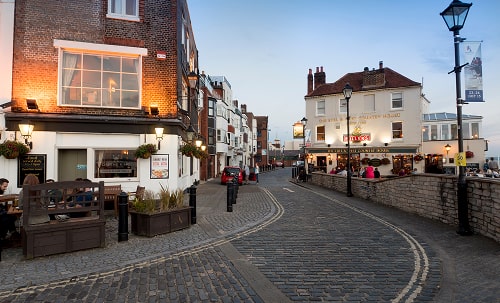
We had a call from a developer last week asking for us to insure a pub he purchased 3 years ago to develop into 8 luxury apartments. After a lengthy discussion about all the different types of insurances he might need, we slowly started to piece things together for him.
After speaking to the developer and finding out exactly what his plane were for the pub, one of the first questions we asked the property developer, was if there were any restrictive covenants on the property. To this he answered yes, but stated it should be ok as nothing had come about since he had obtained planning a couple of years ago. The covenant stated that the public house was not be used as a residential premise and that it must always remain a public house.
This Restrictive Covenant was placed on the property in 1883. So yes, the developer was correct in the fact that all was quiet for the last two years and no-one had brought the covenant to light, but we had to remind him that when he came to sell these apartments, the purchasers conveyancer would pick up the fact that there was this old covenant in place and which potentially could have the development ripped down.
As the covenant was so old and the planning had been in place for 2 years we managed to negotiate an extremely favourable rate from an insurer for a Restrictive Covenant Liability policy, covering any potential claims that could come about.
Unoccupied Buildings Insurance
We then advised the developer that the unoccupied buildings insurance policy he had in place, was no longer valid since he was now undertaking structural works on the premises to a cost of 300k, which would be made up of a double storey extension and a large loft conversion.
His existing unoccupied property insurance policy would only cover him for 30k of internal renovation works of the non-structural type, which is why we advised him he must change the policy to a provider that would give cover for unoccupied property insurance undergoing major works, that would insure it comprehensively just in case there was any kind of loss.
Due to the change of use from commercial to residential we also advised that in order for the developer to sell the property he would need a build warranty which would cover him and the purchasers for any latent defects over a 10-year period.
There was also the issue of a neighbouring property being less than a metre away. Due to the type of works taking place i.e.excavation of 4m depth we advised the developer that a JCT 6.5.1 should be taken out to avoid any large non- negligence claims not only during the build but also further down the line.
The last policy we put in place for this property developer was for a 5.4a JCT contract. This contract was specific to the developers build, which would protect him if the builder was to go into administration / if the builder’s policy had any endorsements on their policy re certain works or the builder’s policy was cancelled for non-payment and no one was made aware.
Again, Construction Insure have left no stone unturned and have helped the developer as much as possible protect their investment whilst undertaking a commercial property development.

